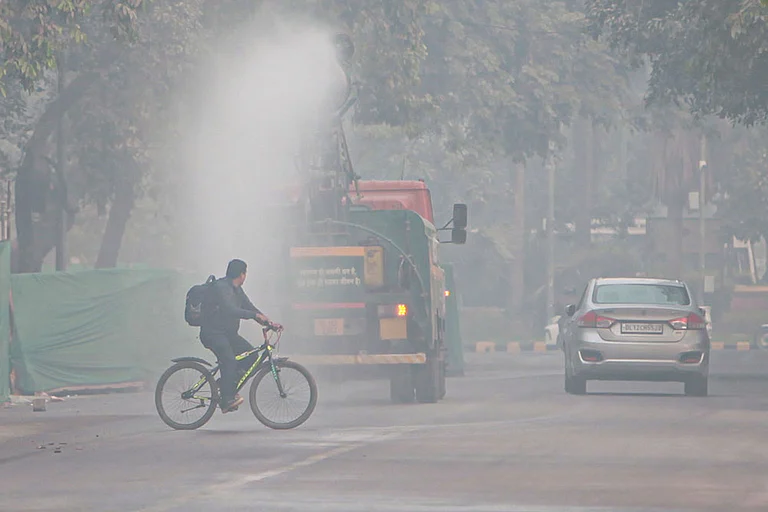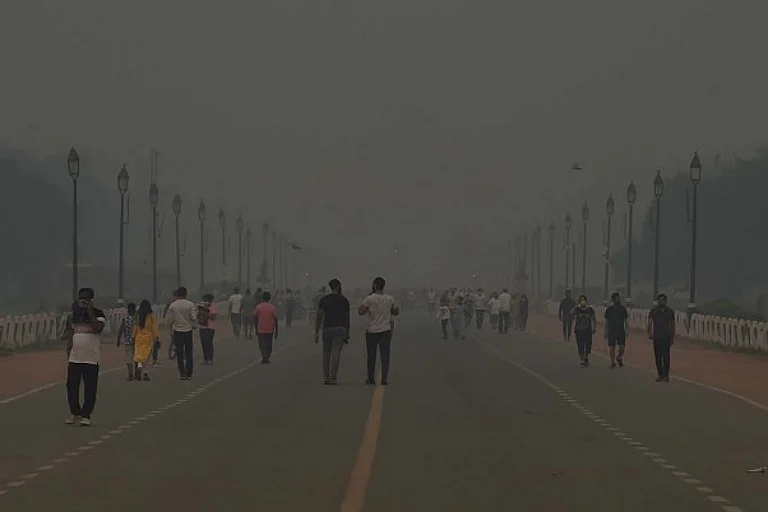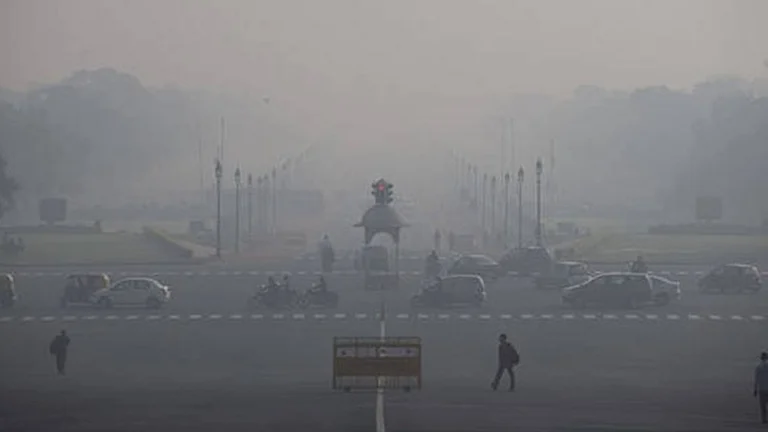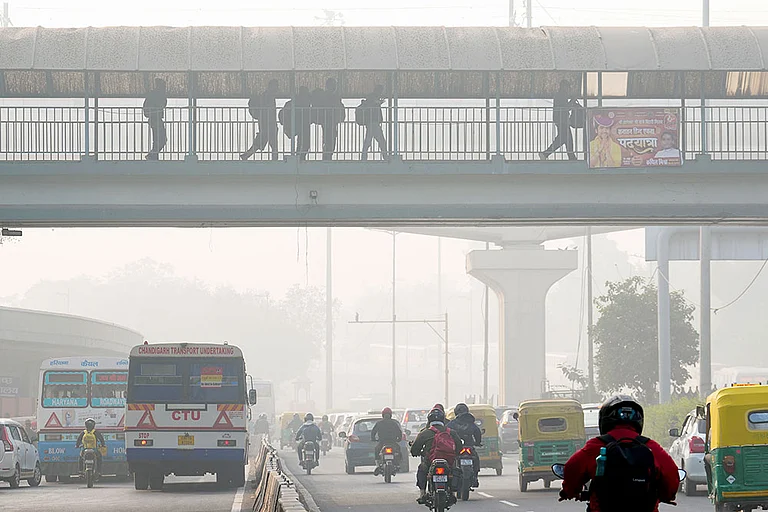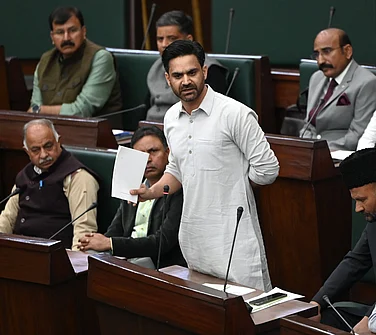Delhi woke up to a slight improvement in its air quality today.
According to the Central Pollution Control Board (CPCB), the air quality index (AQI) has shifted from the 'severe' to the 'very poor' category. The air quality still remains in the toxic range.
The capital's IGI Airport recorded an AQI of 366, Bawana 414, Aya Nagar 354, Ashok Vihar 414 and Anand Vihar 401, among others. The air quality in areas such as Rohini (406), ITO (347) and Chandni Chowk (334) remained dangerously high.
Experts have raised alarms as Delhi grapples with the health implications of pollution. Highlighting the impact of pollutants on human nervous system, Dr. Ish Anand, a neurologist at Sir Ganga Ram Hospital, told PTI, "Pollutants can severely affect our nervous system.
Particles, hydrocarbons and nitrous oxide can influence our neurons, especially in children. It leads to an increase in cases of ADHD and autism spectrum disorders."
The situation is equally concerning for those with pre-existing heart conditions. A cardiologist at the same hospital, Dr. JPS Sawhney, says the rise in AQI caused a surge in health complications. "As air pollution has worsened, we are seeing a significant rise in heart attacks, high blood pressure and other health issues.
Many patients are also experiencing lung problems, which exacerbate their heart conditions. We are witnessing an increasing number of emergency cases, including heart failure, high BP, diabetes and other related issues."
Responding to the worsening pollution, the Delhi government has implemented a 50% work-from-home policy for its employees and has appealed private organizations to adopt similar measures. To combat the rising pollution crisis in the National Capital Region (NCR), Delhi has introduced stricter regulations.
Under the revised guidelines, physical classes will be suspended for students up to Class V under GRAP Stage III and up to Class XII under GRAP Stage IV. This change in policy removes the discretionary powers previously held by state governments and mandates action across NCR.







